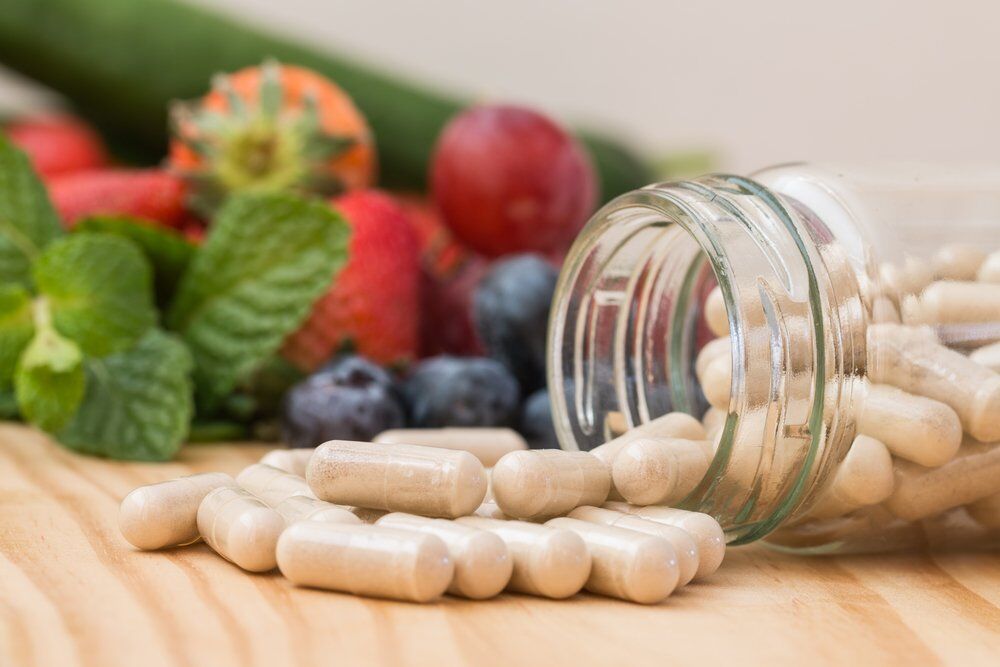
The Best Supplements and Products for Vitamin K
Vitamin K is an underappreciated supplement ingredient that could very well become more and more popular over time. With several benefits to supplementing alongside the fact that it is challenging to hit your recommended daily intake (RDI) through diet, vitamin K is an excellent ingredient to look out for when purchasing your supplements.
Dietary Sources of Vitamin K
Before we talk about supplementing with Vitamin K, we thought it would be a good idea to first mention where Vitamin K can be found naturally in your diet.
The best source of Vitamin K is dark green leafy vegetables such as kale, spinach, or even broccoli. You can also find Vitamin K in meat, dairy products, and eggs. Vegetable oil is another surprising source. While many foods contain Vitamin K, none of them are an abundant source.
This is why supplementation is also recommended, not just to hit your RDI, but also because Vitamin K supplementation has been shown to have its own benefits.
Benefits of Supplementation
We have covered the benefits of Vitamin K supplementation in our other article on Vitamin K, but it is a good idea to quickly cover them here.
- Reduced Risk of CVD – by helping to treat vascular calcification, Vitamin K may well lower the risk of cardiovascular disease developing
- Reduced Mortality in Hepatic Cancer Patients – Studies have found that patients with Hepatic (liver) cancer who take Vitamin K supplements may live longer than those on a placebo. The results are not statistically significant, but future studies will look closer at this possible development.
- Increased Bone Density – Great news for people who suffer from osteoporosis or even weightlifters who want stronger bones. Vitamin K has been shown to increase bone density, which can reduce the risk of fractures.
Supplements and Products that Contain Vitamin K
Vitamin K is not a common supplement ingredient, but it is present in certain products. Here is a list of some of the best sources of Vitamin K in supplements:
Whey Protein: While whey protein is not a great source of Vitamin K, it can certainly contain it. People who are on medications which do not interact well with vitamin K are often told to pay attention to the labels. If you are looking for an increase in Vitamin K you might also want to read those labels.
Greens Supplements: This form of supplementation has exploded in popularity in recent times. This is partly due to the fact that more people are aware of them. But it could also be the fact that for years green supplements tasted awful!
A greens supplement is made from … well … greens! Kale, spinach, spirulina, broccoli, and many other similar vegetables. If you have read our section on dietary sources of Vitamin K, then you will know that these are all amazing sources of Vitamin K.
In fact, greens supplements may be the best way to supplement Vitamin K, as they have so many other benefits and often taste amazing.
Joint Supplements: While Vitamin K is not a common ingredient in joint supplements, it is increasingly being used. This is due to its ability to increase bone density, which is something that people taking joints supplements are often in need of.
Multivitamins: The final supplement on our list is perhaps the most obvious! Vitamin K is a common ingredient for multivitamins. The best thing about multivitamins is that they will contain the RDI of Vitamin K, meaning you won’t have to do anything other than take your tablet or capsule and you are set up for the day.
Final Thoughts
Vitamin K is a great supplement ingredient. Diet is not a good way to hit your ideal levels, which means that a supplement such as a greens powder or multivitamin is perfect. The fact that taking these supplements has numerous other benefits is an added bonus.
But supplementation should not be your only strategy, improving your diet should also be considered. Adding more fruits and vegetables to your diet is cost effective and a great nutritional choice. We should point out that though it is possible to increase Vitamin K through increasing meat consumption, this may not be a great choice.
While meat has many benefits, most diets (particularly in Western countries such as the UK) already contain sufficient/too much meat. Looking to increase fruit, veg, and dairy is perfect. As is a greens supplement or multivitamin.
You should be taking whey protein anyway, and joint supplements are great, but their Vitamin K content is not guaranteed to be sufficient. Many whey protein powders don’t contain much at all.



No Comments yet!